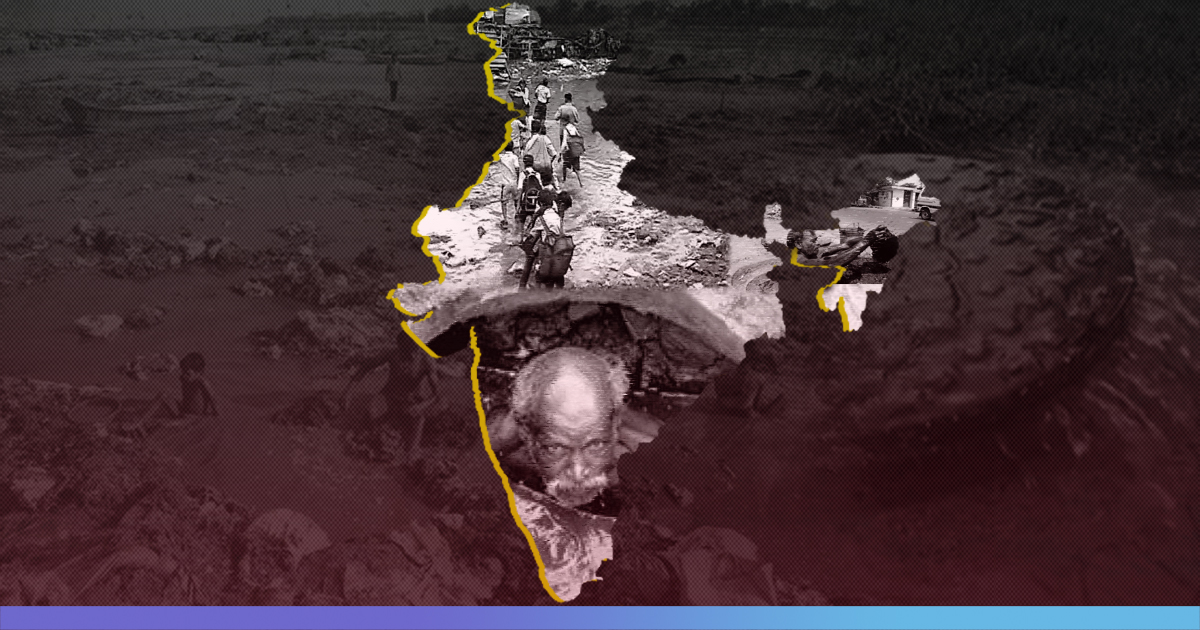According to the National Commission for Safai Karamcharis (NCSK) data, 50 workers have died cleaning sewers in the first six months of 2019.
However, NCSK says that this is an underestimate since out of 36 states and Union Territories, it includes figures for just eight states – Uttar Pradesh, Haryana, Delhi, Punjab, Gujarat, Maharashtra, Karnataka and Tamil Nadu.
What Does The Data Say?
NCSK also says that many of these eight states have under-reported numbers. The Indian Express accessed NCSK’s official records and found that deaths of three sewer workers were reported between January 1 and June 30 this year by Delhi, whereas in this period, twice as many workers have died.
NCSK is the only agency in the country to maintain records of manual scavenging deaths. In June 2019, three workers employed to carry out repairs at Delhi Jal Board sewage treatment plant died, but their deaths were not confirmed by the state, leading to not being officially recorded by NCSK.
The Commission has a tally of 817 sewer workers’ deaths since 1993, which was the year when the practice was outlawed in India. Until June 30 this year, the data is only for 20 states, with no reporting from the rest.
A significant observation was made by the Commission about Swachh Bharat Abhiyan. The NCSK “feels that this Abhiyan should not focus just on toilet building but also on the eradication of manual scavenging or workers’ rehabilitation”.
Tamil Nadu has recorded the highest numbers of casualties with 210 deaths till date.
Gujarat has reported 156 deaths, followed by Uttar Pradesh and Haryana documenting 77 and 70 deaths respectively. Over the last six months alone, there were 11 deaths in Haryana.
The Commission also states that the “largest employer of safai karamcharis” is railways, and the “problem of manual scavenging is nowhere as acute as it is in the Railways”.
Coming to payment of Rs 10 lakh to the families of the deceased, which is the mandatory compensation, Tamil Nadu has done so in 75 percent of cases. Gujarat, however, has done it in just over 30 percent of cases.
It has now been proposed by NCSK chairperson Manhar Valjibhai Zala that The Prohibition of Employment as Manual Scavengers and Their Rehabilitation Act, 2013, should be amended by the Union government so that the principal employers like state government agencies and urban local bodies are held accountable for the casualties, not just the contractors who are assigned the work.
“I will write to the Ministry of Social Justice and Empowerment and ask for an amendment,” Zala said. “Also, the law allows workers to go in (sewers) if they wear a protective covering. Why should a Dalit worker have to enter the sewer in the first place? Deaths will not stop unless states and municipalities invest in mechanised cleaning of sewers and septic tanks.”
The Logical Indian Take
Manual scavenging is modern-day slavery. That it continues in the 21st century India is horrifying and outrageous. It is one of the deadliest jobs one can be involved in. At the same time, it is important that we ensure that further deaths due to manual scavenging do not occur.
The Prohibition of Manual Scavengers Act should be implemented with more efficiency; the governments at the centre and the states should establish that manual scavenging will not be tolerated and lawbreakers will be punished. Also, alternate means of employment should be generated for the impoverished people who are forced to become manual scavengers due to lack of alternative means of livelihood.
The most harrowing part is that despite knowing that manual scavenging is banned, people still employ scavengers to clean their drains and tanks. It is important to care for the lives of people who work for us, and even more important to ensure that no one has to get involved in something so deadly that it might take their life.
Also Read: Tamil Nadu: Asphyxiation During Manual Scavenging Claims Lives Of Two Siblings











